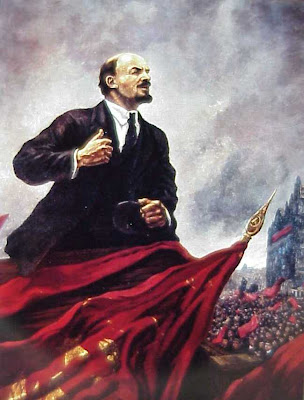
Workers of Left parties on Monday held protest demonstrations at several places across the country against “one-sided agreements” being reached with the U.S. during the ongoing visit of President Barack Obama. They carried placards demanding extradition of Union Carbide chief Jack Anderson for trial in India in the Bhopal gas tragedy case and opposing opening of Indian markets for U.S. companies.
KARUR:
Cadre of the Left parties, including the Communist Party of India and the Communist Party of India (Marxist) staged a demonstration here on Monday protesting the visit of United States President Barrack Obama. The CPI (M) Karur district secretary, G. Rathinavelu and the CPI district secretary, K.K. Periyasamy, led the protest held near the bus stand. Leaders of the two parties also participated.
The agitators said the visit aimed at serving the interests of US corporates and perpetuating American hegemony. They saw no merit or use for India in the tour of Mr. Obama. They lambasted Prime Minister Manmohan Singh and the Congress for `hobnobbing' with the United States .
Perambalur
Cadre of the CPI and CPM staged an agitation near the new bus stand here. They also protested the foreign investment in retail business and commerce in the country and demanded relief for those affected by the Bhopal gas tragedy. V. Gnanasekaran, Perambalur unit secretary of the CPI and Muthusamy, Perambalur Taluk unit secretary of the CPI (M) led the agitation. District secretary of the CPI A. Venugopal and District executive member of the CPI (M), S. Chelladurai participated.
Pudukottai
M. Chinnadurai, District secretary of the CPI (M) and M. N. Ramachandran, Pudukottai town secretary of the CPI led an agitation at the old bus stand here.
Tiruchi
Members of the CPI (M) and the CPI carried out a joint demonstration in the city on Monday They raised slogans warning America against looking at India as a global marketplace and as a customer of its military weaponry.
Thanjavur
Members of the Makkal Kalai Ilakkaiya Kazhagam staged a demonstration here on Monday. District secretary Ravanan led the agitation. The protestors said India is toying the line of USA, which invaded Iraq in the name of searching for weapons. India is acting like an agent of USA.
Tirupur
The Democratic Youth Federation of India (DYFI) staged an ‘Obama go back' agitation here on Monday evening to express their displeasure of the US administration when it comes to their handling of certain bilateral issues including the Bhopal gas tragedy. The agitators symbolically submitted a memorandum to the statue of Tirupur Kumaran to highlight their demands since they ‘felt' that only Kumaran, the freedom fighter, could solve the issues not tackled by the US government till now. According to them, the US should ensure justice for the Bhopal gas tragedy victims and make Dow Chemicals pay for the damage as well as clean up the factory site.
The DYFI men also protested the lack of initiative from the US government to extradite the former Union Carbide chairman, Warren Anderson, to India to stand the trial. The other issue that bothered the DYFI people was the pressure put by the US on India's foreign policy as well as to open up the education and retails sector to foreign direct investment.
Nagercoil
Activists of Communist Party of India (Marxists) staged a demonstration as part of a nation-wide agitation in Nagercoil, Thuckalay and Kaliyakkavilai on Monday to protest against the President of United States of America, Barack Obama, who was trying to thrust his economic liberalisation and foreign policies on India.
The agitation was led by the district secretary of CPI (M), N. Murugesan.
The State executive member S. Noor Mohammed said that the visit of the U.S. president was for the benefit of the people living in America.
SALEM
Members of Left parties, including CPI and CPI (M), as part of nationwide stir on Monday staged a demonstration here condemning the visit of US president Barack Obama to India. The members raised slogans against the US presence in Afghanistan and Iraq. The CPI district secretary, A. Jeevanandam, CPI (M) secretary R. Venkatapathy and others participated in the agitation.
MADURAI:
Condemning the United States President Barack Obama's visit to India, cadre of the Communist Party of India (Marxist) and All India Forward Bloc staged a demonstration here on Monday and raised slogans stating that the visit was to push India to sign deals with the US, “which are inimical to national sovereignty and people's interests.”
The protest was led by R. Annadurai, CPI(M)'s urban district secretary in the presence of Ramesh, district president, All India Forward Bloc, near the Kattabomman statue near Periayar Bus Stand.
State executive committee member P. Sampath condemned the foreign policy of the United States and said that it exemplified imperialism in its fullest form by supporting the Israeli occupation of Palestine, economic embargo against Cuba and threatening Iran.
The country-wide protest was to demonstrate the objection of the Left parties to the visit of the US President. A CPI (M) cadre stood upside down for quite some time to symbolise the dangers of having foreign direct investment in retail trade.
Anantapur
CPI district secretary B.Jagadish and CPI(M) district secretary Obulakonda Reddy, in a joint statement, flayed the visit of US President Barak Obama to India saying that his visit was mainly intended to loot the Indian market and flood the country with their products for gaining monopoly on Indian market.
The activists of the two parties also burnt an effigy of Mr. Obama and shouted slogans “Obama go back.”
DAVANGERE
Members of the Communist Party of India (CPI) and the Communist Party of India (Marxist) staged a dharna at Gandhi Circle here on Monday demanding that U.S. President Barack Obama make his country's stand clear on certain “vital issues”.
BANGALORE
Activists of Communist Party of India (Marxist) staged a protest here on Monday against agreements signed between India and the United States during the current visit of the U.S. President Barack Obama.
Addressing the gathering, CPI(M) leader G.N. Nagraj said that the U.S. President was on a visit to India to protect the interests of 200 to 300 U.S.-based multinational companies. “Indian farmers will be affected by the entry of these MNCs, which will be receiving subsidy to a tune of 75 per cent. The entry of MNCs will also affect the Indian universities, research institutions, agriculture and other sectors,” he added.
Several leaders of Left parties, including Siddanagouda Patil, S.Y. Gurushanth, K. Prakash and others, addressed the protesters.
Kolar
Communist Party of India (Marxist) State secretariat member G.C. Bayya Reddy has expressed concern over the U.S. pressure about opening up of the retail sector to the foreign direct investment.
He was addressing a protest demonstration at Gandhi Park here on Monday. The CPI(M) district unit organised the protest against the visit of U.S. President Barack Obama.
Bidar
Workers of the Left parties staged a protest against visiting U.S. President Barack Obama in Bidar on Monday. Activists marched from Dr. Ambedkar Circle to the Deputy Commissioner's office shouting slogans such as “Obama Go Back”. They submitted a memorandum to the Prime Minister through the Deputy Commissioners' office and dispersed. CPI leader Baburao Honna said Mr. Obama's visit had not benefited Indian in any way. “If Mr. Obama was sincere, he should have declared compensation for the victims of the Bhopal gas tragedy that was caused by a U.S.-based multinational company, which has clearly not happened.”
Raichur
Members of the CPI and the CPI(M) staged a dharna against the visit Mr. Obama here on Monday.
Activists wearing black badges staged a dharna at Ambedkar Circle. They burnt an effigy of Mr. Obama and shouted slogans against the U.S. Government, accusing it of interfering in India's affairs. Later, they went in a procession and staged a dharna on the premises of the Deputy Commissioner's office. They submitted a memorandum to the district administration, urging the Centre not to entertain any deal with the U.S.
In the memorandum, they said that the visit was meant to bring pressure on the Union Government to offer red carpet welcome to multinational companies to invest in business, agriculture, education and other important sectors.
This would affect the economy of the country, they said.
MANGALORE
Members of CPI (M) staged a protest against the visit of US President Barack Obama to the country here on Monday November 8.
The protest was held in front of the DC office at 4 pm. B Madhava, secretary, CPI (M) district committee stated that the US is trying to dominate the world with its policies and that Obama is acting against the interests of Indians.
The Left parties protested at Sikar, Jhunjhunu, Bikaner, Kota, Chittorgarh, Ajmer, Jaipur in Rajastan, Kerala, Tripura and West Bengal.
(Courtesy : The Hindu)









